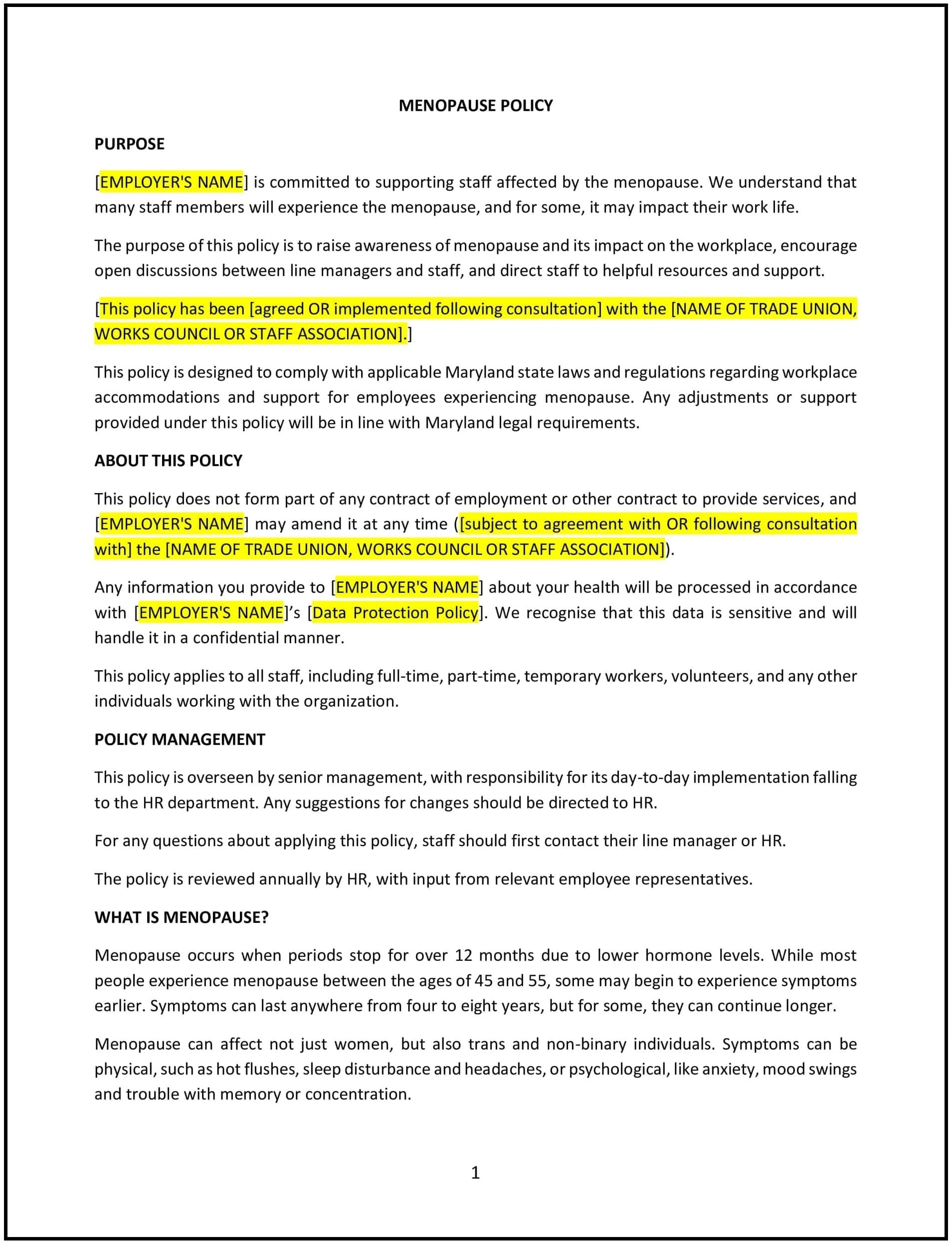Got contracts to review? While you're here for policies, let Cobrief make contract review effortless—start your free review now.

Customize this template for free
Menopause policy (Maryland)
This menopause policy is designed to help Maryland businesses create a supportive and inclusive work environment for employees experiencing menopause. It outlines guidelines for accommodations, communication, and education to address the unique challenges faced by menopausal employees.
By adopting this policy, Maryland businesses can promote employee well-being, reduce workplace stigma, and enhance overall productivity.
How to use this menopause policy (Maryland)
- Define menopause-related challenges: Identify common symptoms and workplace impacts, such as fatigue, hot flashes, or concentration difficulties.
- Provide accommodations: Offer practical support like flexible work schedules, access to private rest areas, or adjustments to workplace temperature.
- Encourage open communication: Foster a workplace culture where employees feel comfortable discussing menopause-related needs with HR or managers.
- Include training programs: Provide education for managers and employees on menopause, its effects, and how to support colleagues effectively.
- Establish reporting mechanisms: Create a process for employees to raise concerns or request accommodations confidentially.
- Monitor implementation: Regularly assess the effectiveness of accommodations and gather feedback from employees.
- Reflect Maryland-specific considerations: Address any state laws or resources related to workplace accommodations or employee well-being.
Benefits of using this menopause policy (Maryland)
Implementing this policy provides Maryland businesses with several advantages:
- Enhances inclusivity: Supports employees experiencing menopause and reduces stigma in the workplace.
- Improves productivity: Addresses menopause-related challenges that may impact performance, leading to better engagement.
- Promotes well-being: Demonstrates a commitment to employee health and work-life balance.
- Encourages retention: Creates a supportive environment that helps retain experienced and skilled employees.
- Reflects Maryland values: Aligns with local standards for diversity and employee welfare.
Tips for using this menopause policy (Maryland)
- Communicate availability: Make employees aware of the policy and the support resources provided.
- Train managers: Equip supervisors with the knowledge to provide accommodations and foster open communication.
- Be flexible: Tailor accommodations to individual employee needs and workplace requirements.
- Gather feedback: Regularly review the policy and seek input from employees on its effectiveness.
- Stay updated: Reflect changes in Maryland workplace laws or best practices in the policy.